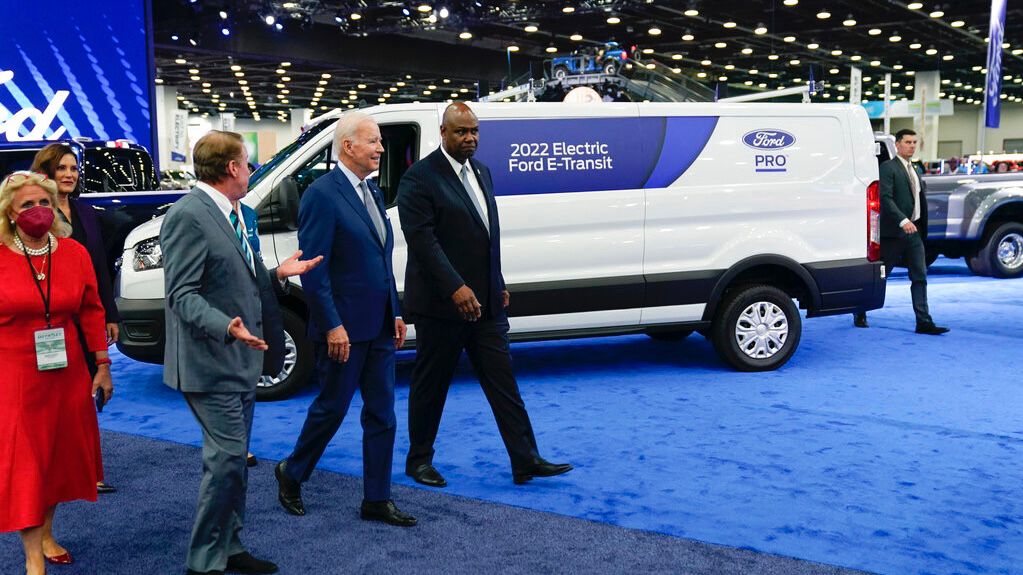WASHINGTON — With 35 days until President-elect Donald Trump is inaugurated, the U.S. Energy Department announced Monday a $9.63 billion loan to build three electric vehicle battery plants.
Bạn đang xem: Energy Department will loan $9.6B to build EV battery plants
The loan will go to BlueOval SK — a joint venture between Ford Motor Co. and the Korean EV battery maker SK On — for factories in Tennessee and Kentucky.
Xem thêm : Koppers Holdings Slashes Interest Rates on $495M Term Loan, Secures Major Debt Refinancing Win
“Today’s announcement reinforces President Biden’s historic efforts to onshore and re-shore domestic manufacturing and ensure businesses remain global leaders in technologies of the future,” the Energy Department said in a statement.
Expanding U.S. production of EV batteries is a key component of the Biden administration’s efforts to reduce the country’s reliance on China while working to ensure that half of all new vehicles sold by 2030 have zero emissions. As of November 2024, the Energy Department has received applications for $324.3 billion in Advanced Technology Vehicles Manufacturing loans for everything from domestic critical mineral processing to battery recycling.
Monday’s loan announcement is the largest to be granted through the program.
The loan comes as the Trump transition team prepares to roll back many Biden policies designed to spur EV adoption. On Monday, Reuters reported the Trump team plans to cut subsidies for EVs and charging stations while bolstering measures to block cars and battery materials from China. They also plan to impose tariffs on battery material imports from countries that aren’t allies, according to the report.
Nguồn: https://marketeconomy.monster
Danh mục: News

